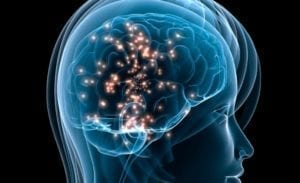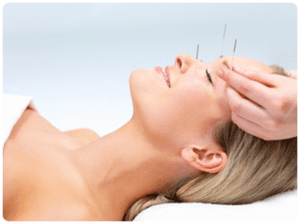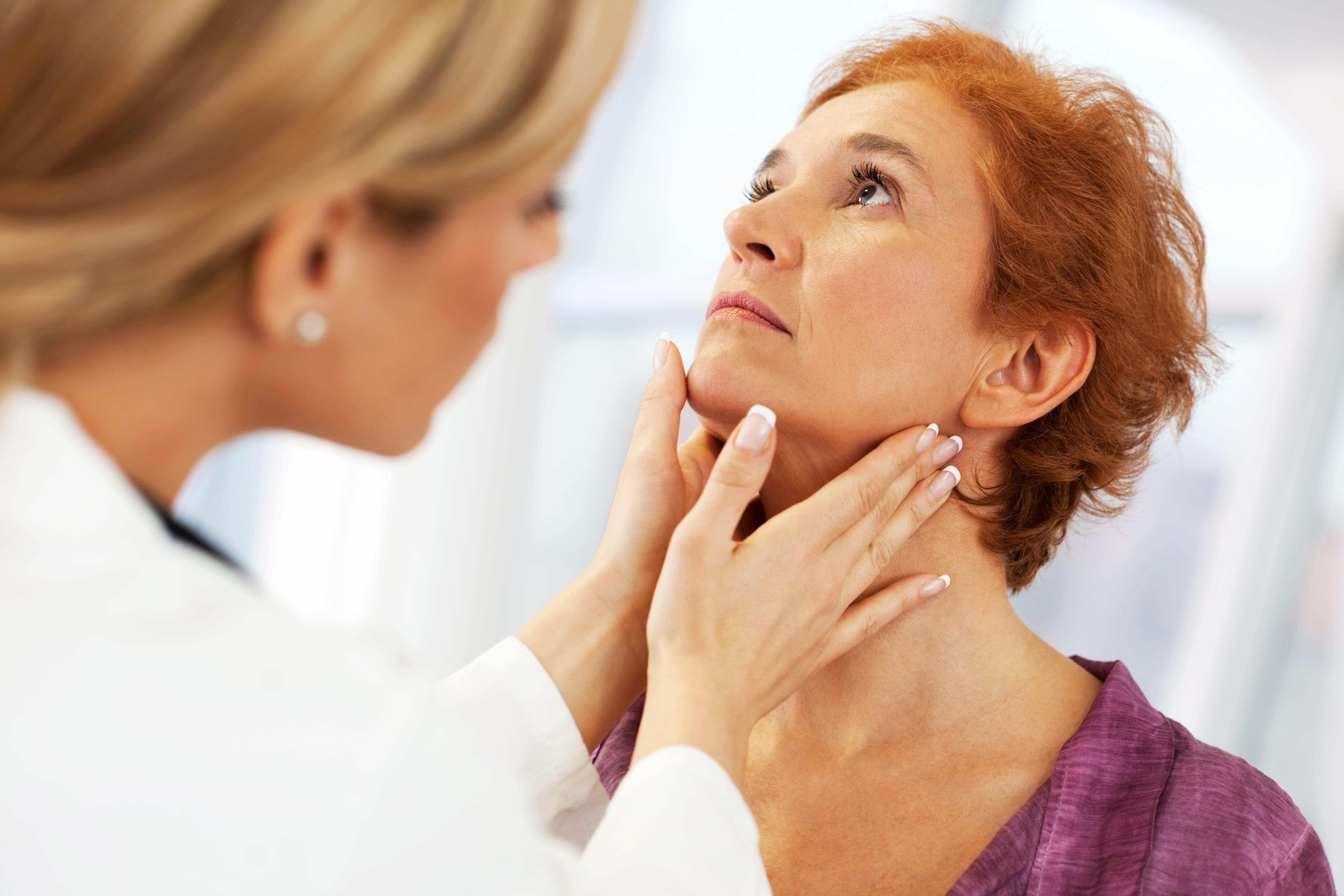Women’s Health
PMS
Premenstrual syndrome (PMS) is an all-too-common and unnecessary condition that affects up to 95% of menstruating women at some point in their lives. 40% of women are affected significantly at some point in their reproductive years.
PMS is a clinical disorder defined as a recurrent cycle of physical and psycho-emotional symptoms that occurs 7–14 days before the menstrual cycle and is troublesome enough to interfere with aspects of a woman’s life.
Premenstrual Dysphoric Disorder (PMDD) is a less common, but more severe form of PMS where 3 to 8% of women experience symptoms severe enough to be diagnosed with PMDD. Women with PMDD experience intense mood changes, including depression and anger, fatigue, and difficulty concentrating. PMDD significantly interferes with the quality of life and is often treated with medications such as anti-depressants by conventional physicians.
Over 150 symptoms have been linked to PMS. The most common and primary physical symptoms include:
- Bloated feeling
- Feeling of weight increase
- Breast pain
- Skin disorders
- Hot flushes
- Headache
- Pelvic pain
- Change in bowel habits
- Acne
The most common Psychologic symptoms include:
- Irritability
- Aggression
- Tension
- Anxiety
- Depression
- Lethargy
- Insomnia
- Change in appetite
- Crying
- Change in libido
- Thirst
- Loss of concentration
- Poor coordination, clumsiness, accidents
Both PMS and PMDD are clinical disorders with defined criteria listed in the American Psychiatric Association’s Diagnostic and Statistical Manual, Fifth Edition (DSM-V). According to the DSM-V, the diagnosis of PMS requires 5 of these 11 symptoms, including at least one of the first four listed:
- Depressed mood
- Anxiety
- Mood Lability aka “Mood swings”
- Anger or Irritability
- Anhedonia (loss of pleasure in life activities)
- Difficulty concentrating
- Fatigue / Lethargy
- Appetite changes
- Sleep alterations
- Sense of feeling overwhelmed / loss of control
- Physical symptoms such as bloating or breast tenderness (mastalgia), headaches, joint/muscle pain, tension and weight gain
The complex relationships that exist among hormones may offer insight into why some women suffer more than others. For instance, mild elevations of prolactin, a hormone that is primarily involved in regulating the development of the breast during pregnancy, have been associated with PMS, menstrual irregularities, and breast tenderness whereas low levels of thyroid hormone can contribute to depression, fatigue, and heavy menses.
The current working theories for underlying causes of PMS are multifactorial with key interactions among:
- Neurotransmitters like serotonin and GABA
- Steroid hormones (estrogen and progesterone imbalance)
- Circadian systems
- Behavioral, emotional, and cultural factors
Other causes include environmental pollutants and xenoestrogens that mimic and disturb the natural hormone rhythm, as well as daily stress, poor dietary choices, nutrient deficiencies, and more.
Don’t let PMS be this horrible thing that society has come to accept and that you, as a woman, need to live with. Rather, your menstrual cycle and all the symptoms that come with it are a beautiful report card of what is happening in your body. It is your body’s intuitive way to communicate some imbalance within you, so that you will pay attention and restore that balance your body and mind are craving. We can help you achieve this!
Natural solutions to PMS can be simple, depending on your type (see below). I truly believe that PMS does not need to be a normal part of a woman’s life, but I equally believe that synthetic hormones, oral birth control pills and anti-depressants are not the solution! Naturopathic Medicine encompasses botanical herbal remedies, acupuncture, nutrients and vitamins, nutrition, exercise and detoxification programs to alleviate and rid your body and mind of PMS.
There is a plethora of evidence for nutrient deficiencies in PMS, but here are just two worth mentioning:
- The nurses’ health study part II found B-Level evidence for symptom relief of PMS from calcium carbonate/citrate 1200mg a day in divided doses. The carbonate form of calcium is not one that I recommend personally as it is the poorest absorbed and can cause constipation in some patients. Rather calcium citrate or calcium malate are ideal options.
- The Canadian Journal of Clinical Pharmacology in 2009 reported a daily dose of 1000 IU of Vitamin D3 can also have a positive impact on PMS symptoms.
Different types of PMS:
PMS – A (Anxiety):
Key symptoms include feelings of overwhelm, increased sensitivity (especially to perceived rejection or criticism or just bawling over a commercial?!), feeling on edge or irritable.
Underlying imbalances may involve hormonal imbalance (relative excess of estrogen to progesterone), inadequate neurotransmitter synthesis: low serotonin, adrenal fatigue and cortisol dysregulation.
PMS – C (Cravings):
Key symptoms include desire for carbohydrates(salty or sweet cravings), general increase in appetite, headaches, migraines and fatigue.
Underlying causes may involve low serotonin (carbohydrate ingestion temporarily elevated your serotonin – hence why sweets make us feel good in the moment), adrenal fatigue causes low cortisol levels which can cause sugar cravings.
PMS – D (Depression):
Key symptoms include low mood paired with lethargy, forgetfulness and confusion.
Underlying imbalances may involve an under-active thyroid and low serotonin.
PMS – H (Hydration/Water Retention):
Key Symptoms include abdominal bloating, breast tenderness/swelling, weight gain of over 3 pounds.
Underlying Imbalances may involve estrogen excess, increased stress which causes the adrenal gland to secrete excess of both the stress hormone cortisol and aldosterone which causes salt and water retention.
Note: There are hundreds of evidence-based research articles for a variety of vitamins, minerals, herbs and lifestyle changes to help improve and alleviate your specific PMS.
Women’s Health
PCOS
Nearly one in five women aged 15-44 have polycystic ovary syndrome (PCOS). Metabolic health and lifestyle choices can both improve and worsen PCOS. Naturopathic care for PCOS takes a whole person approach of the woman, treating individual needs including regulating the menstrual cycle, reducing male hormones, infertility, depression, anxiety and body weight issues. This is necessary considering the complexity of the syndrome and as such requires both a thoughtful and accurate assessment and plan.
For those patients wanting to avoid the use of synthetic hormones and drugs, natural solutions for PCOS include herbal medicine, nutritional supplements, diet, exercise and lifestyle advice emphasizing workable, realistic and effective solutions.
What is PCOS?
Polycystic ovary syndrome is the most common reproductive and endocrine disorder affecting reproductive aged women. It is a complex hormonal condition, with ‘polycystic’ translating literally as ‘many cysts’.
The exact cause of PCOS is complex and multifactorial involving: genetics, developmental exposures, environmental exposures, lifestyle choices (diet and exercise), emotional and hormonal factors.
PCOS may be clinically diagnosed, as per the Rotterdam Criteria, if a woman has at least two of the following features:
- Polycystic ovaries on ultrasound
- Irregular menstruation (menstrual cycle longer than 35 days or no periods over six months or more)
- High levels of male hormones (androgens) indicated with blood tests or by the presence of increased hair growth on the face or body, acne and/or hair-loss from the head.
Additional Symptoms of PCOS can include any of the following:
- Acne
- Anxiety or depression
- Abnormal facial hair (hirsutism)
- Dark patches of skin (acanthosis nigrans)
- Irregular or infrequent periods
- Heavy periods
- Overweight, difficulty losing weight
- Pelvic pain
- Recurrent miscarriage / infertility
- Thinning hair / hair loss
Over 80% of women with PCOS have underlying metabolic disturbances. Insulin causes changes in ovarian follicles and ovarian hormone production. About half of women with PCOS are overweight and many express an apple shape or a large abdomen with skinny legs and arms. Many women are diagnosed with PCOS during their early reproductive life and report feeling isolated, depressed and anxious about their fertility and appearance.
Naturopathic Medicine is a type of overarching integrative medicine that covers nutrition, herbal medicine, massage, acupuncture and homoeopathy. It follows an independent framework that incorporates personal characteristics of women with PCOS as well as features of the disorder. Treatment aims to improve general well-being and promote lifestyle behaviours that reduce the expression of the disorder.
Women’s Health
Endometriosis
Your endometrium is the lining of your uterus. During the luteal phase of your cycle, the endometrium thickens, breaks down, and bleeds, causing the flow you experience during your period. This is part of a healthy monthly cycle.
However, in cases of endometriosis, some of the endometrium may grow in areas where it shouldn’t, including your ovaries, fallopian tubes, and bladder. When this happens, it still behaves the way it would inside your uterus. As such, your body now has no way of expelling this extra tissue which can then cause significant pain and other complications.
Some symptoms of endometriosis include:
- Painful periods
- Cramps lasting for several days before and after your period
- Lower back or abdominal pain
- Heavy flow
- Pain during bowel movements, urination, or sex
- Digestive difficulty
- Nausea
- Fatigue
- Bloating
Period cramps aren’t uncommon, but if your cramps are debilitating enough to hold you back from doing the things you love, you may have endometriosis. This can be a challenging disorder to live with, and managing inflammation and understanding triggers can be very helpful. There are naturopathic treatments for endometriosis which may be effective in helping you manage your symptoms and get back to living a normal, healthy life.
Women’s Health
Fertility Enhancement
Deciding to have children isn’t something most people take lightly. It’s a decision that affects the rest of your life, and there are a lot of emotions involved on both sides. Struggling to conceive brings about more stress to on already emotional process. However, Naturopathic medicine can help you improve your chances of getting pregnant. There are a number of different health concerns that can temporarily interfere with your ability to bear children. These may include:
- PCOS
- Endometriosis
- Hormone Imbalance
- Obesity
- Being underweight
- Uterine fibroids
- Cervical dysplasia
- Fallopian irregularities
- Cervical mucus abnormalities
- Thyroid and/or endocrine disorders
- Autoimmune conditions
- And more
If you’re struggling to get pregnant, it’s possible one or more of the above issues are the underlying. In that case, contact us at Mind Body Soul Integrative Clinic to book your appointment with Dr. Emina Jasarevic, ND.
Dr. Emina offers fertility enhancement to improve the chances for a natural and healthy conception, pregnancy, labour and baby. Dr. Emina will use naturopathic and conventional laboratory tests to assess overall health in order to treat fertility concerns.
A combination of male and female biweekly or weekly acupuncture, natural hormone support for mom- and dads-to-be, botanicals, vitamin-mineral therapies, homeopathic medicine, dietary and lifestyle plans are all considered. Numerous studies on specific nutrients, botanical medicines and acupuncture treatments have been shown to improve fertility rates.
For example, a milestone study published in the medical journal Fertility & Sterility (1) found that acupuncture dramatically improves the chances of becoming pregnant when used in conjunction with other assisted reproductive techniques. Researchers from Weill Cornell Medical Centre (2) in New York did a review of acupuncture studies in fertility and concluded:
5 Ways that acupuncture helps to boost your fertility:
- Increases blood circulation to the uterus, improving chances of implantation
- Reduces anxiety, stress and the hormones associated with stress, that can significantly decrease fertility (in men and women)
- Normalizes hormone and endocrine systems that regulate ovulation, especially in cases of polycystic ovarian syndrome (PCOS)
- Improves internal communication of the hypothalamic-pituitary-ovarian axis, which plays a key role in fertility
- Regulates the menstrual cycle
A naturopathic approach allows us to uncover the underlying hormonal imbalances that may be at the root cause of infertility. Common conditions include PMS, irregular menstrual cycles, painful periods, luteal phase defects, endometriosis, chronic infections, miscarriage, and adrenal, thyroid or pituitary imbalance.
Some common naturopathic assessments for fertility may include:
- Comprehensive female and male hormone profile — via urine or saliva collection.
- Food Allergy Testing (ELISA blood test for IgG/IgE) with dietary recommendations.
- Environmental Toxicity Testing for heavy metals, solvents, organophosphates and chlorinated pesticides — via urine and blood collection.
Acupuncture & Fertility
Acupuncture is extremely helpful during your 9 months of pregnancy and birth. According to the World Health Organization (WHO)(3), acupuncture has been found useful for relieving labour pain, nausea and vomiting, and significantly reducing the duration of labour. There is also strong evidence that acupuncture can help with a breech birth.
If you are a candidate for assisted reproductive therapies (ART), Dr. Emina collaborates with both the Vancouver specialty clinics and the Kelowna Regional Fertility Clinic. Naturopathic Medicine offers treatments to better support the success of assisted reproductive therapies (ART) such as IVF, IUD, and ICSI to optimize your chances of conceiving and sustaining a healthy pregnancy.
- Paulus W, et al., Influence of acupuncture on the pregnancy rate in patients who undergo assisted reproduction therapy. Fertility and Sterility, volume 77, April 2002, 721-724.
- 5 Ways Acupuncture Can boost Fertility. Prevention.com, 2002.
- Acupuncture: Review and analysis of reports on controlled clinical trials. World Health Organization, Geneva, 2002.www. who.int/medicines
We’ll work with you to discover the underlying cause to your fertility struggles and provide you with a treatment plan designed to overcome those struggles and help you achieve a healthy and happy baby.
Women’s Health
Pregnancy Care
Pregnancy is a wonderful gift and every woman deserves to enjoy the experience. Unfortunately, many conditions arise along the 9-month journey of growing a beautiful baby.
Nausea and vomiting in pregnancy, commonly called “Morning Sickness” (but can occur all day long), affects a large majority of pregnancies. Up to 70% of women report nausea and 30–50% of women experience this during the first 3-5 months of pregnancy. Although most cases are mild and resolve by the twenty weeks, for some, it can last the entire 9 months – clinically known as hyperemesis gravidarum (HG). Read more on ways to support nausea during pregnancy
Other conditions that arise during pregnancy that can be easily resolved through naturopathic support include:
- Fatigue and exhaustion
- Increased colds and flus & weakened immune system
- Muscle cramps and spasms
- Varicose Veins
- Hemorrhoids
- Heartburn & indigestion
- Hypertension (high blood pressure)
- Pre-Eclampsia (a serious condition that requires co-management with your midwife or Obgyn)
Everything shifts during pregnancy. This is a sacred time where a woman is shaping the physical, emotional and spiritual life of another human being. A naturopathic physician can help to ease your stress and worries about what is normal to experience and what is a symptom for concern during pregnancy. It is important for you to be heard, supported, and understood through this transformational time. Parenting has already begun as your child will absorb your feelings, your thoughts and your consciousness while utero. So, take time for yourself to take care of yourself to ensure that you have a healthcare team that supports you and puts you ate ease throughout your pregnancy.
Women’s Health
Vaginal Health
Vaginitis is the inflammation of the vaginal tissue that often causes burning, redness, swelling or itching. Vaginitis can be caused by infectious organisms, such as bacteria, fungi (candida albicans), or protozoa. The vagina can also be irritated by chemicals, spermicides, allergies to condoms (and even your partner’s semen), laundry soap, topical medications, douches, tampons and scented pads or perfumes.
Vaginal Dysbiosis is often an underlying theme to vaginitis. Similar to the microbiome of the gastrointestinal tract, the microbiome of the genitourinary tract is equally important. Vaginal yeast infections, Urinary tract infections and or bacterial vaginosis will flourish in a female body that is out of balance. Thus, a balanced microbiome of the vaginal tract is largely dominated by Lactobacillus species of bacteria; these typically make up 90-95% of healthy vaginal bacteria and are comprised of Lactobacillus crispatus, L gasseri, L iners, and L jensenii. To learn more about the top 3 infections associated with vaginal dysbiosis, click here.
Menopausal (even peri-menopausal) women may experience vaginal dryness and irritation caused by decreased estrogen levels.
Before treating vaginitis, you will need to determine the cause. A visit to the doctor for a physical exam and microscopic culture is often needed to confirm a diagnosis.
Bacterial infections that are not treated properly can spread to the uterus, urethra and external labia, potentially cause pelvic inflammatory disease in some women. Once you have an accurate diagnosis, naturopathic options are very effective in addressing vaginitis once the underlying cause or infectious organism is identified.
Dr. Emina offers easy-to-do, natural remedies to administer at home to both maintain a healthy vaginal flora and to prevent the progression of infections at the first sign of discomfort.
If you do not have extended benefits, you may choose to visit your family doctor first for this exam However, Naturopathic Physicians are able to offer pelvic exams (including pap screenings) and cultures if this is most convenient for you and there is a small fee associated with processing your sample at the local lab.
Women’s Health
Perimenopause / Menopause
Menopause may occur anywhere between the ages of 45 and 55, with the average age being 52. Menopause naturally occurs when our ovaries no longer respond to stimulation from the pituitary gland to secrete estrogen and progesterone. The menstrual cycle usually becomes irregular and eventually ceases to occur. Once a woman ceases to have a period for a full year, estrogen and progesterone levels are typically at their lowest and follicle stimulating hormone (FSH) and luteinizing hormone (LH) are high and this confirms menopause.
The symptoms of menopause can range from mild to severe and last anywhere from 6 to 13 years in duration. At this time in a woman’s life, shifts occur in our emotional, mental, and physical state of being as our bodies go through these hormonal ebbs and flows. Some women are lucky enough to have no symptoms other than the cessation of their menstrual periods, but others may experience on or more of the following:
- Irregular periods
- Vaginal dryness
- Hot flashes &/or night sweats
- Fatigue
- Dizziness
- Joint Pain
- Headache
- Fast Heartbeat
- Chills
- Sleep Disturbances
- Sore breasts
- Nervousness
- Mood changes such as Anxiety &/or Depression
- Weight gain and slowed metabolism
- Thinning hair and dry skin
- Low libido or no sex drive
- Bladder incontinence
The most common symptoms that we see in our practice and are able to successfully alleviate include hot flashes, insomnia, anxiety, depression and vaginal dryness. However, when we focus on these symptoms many of the lesser ones resolve as well.
While we employ a vast range of natural therapies for menopause from herbal and nutrient recommendations to homeopathy and stress management, women suffering from early menopause are turning to natural hormone replacement therapy for better health.
Men also experience male menopause, or “Andropause”, with symptoms of weight gain, fatigue, stress, loss of libido, loss of muscle mass, loss of energy and find relief from natural hormone replacement therapy. We welcome men as patients if you suspect low testosterone levels and low male hormones in general.










